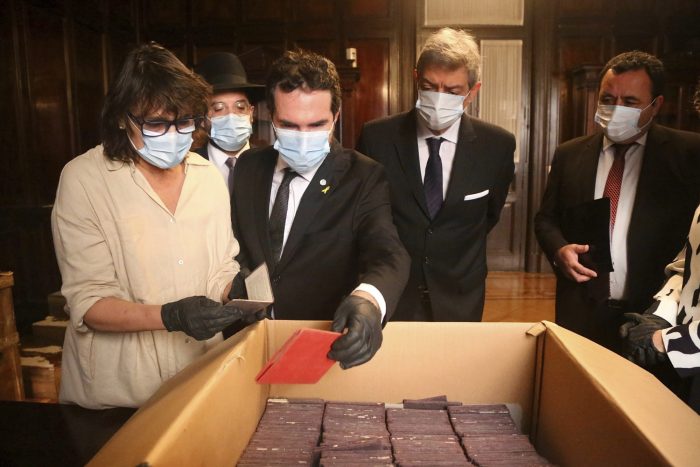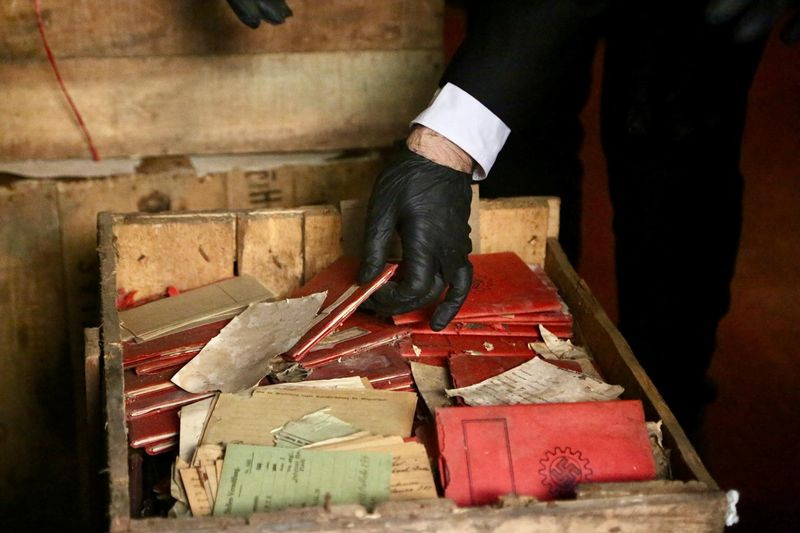BUENOS AIRES, Argentina — Argentina’s Supreme Court revealed Sunday that it has uncovered 83 boxes of Nazi materials in its basement, rediscovering a cache that was originally seized during World War II amid fears it could threaten the country’s neutrality.

According to a court statement, the boxes were originally shipped from the German embassy in Tokyo to Buenos Aires aboard the Japanese steamship Nan-a-Maru in June 1941. At the time, the unusually large shipment alarmed Argentine customs officials, who suspected it might contain materials capable of swaying the nation’s stance in the global conflict.
Though German diplomats claimed the boxes contained only personal belongings, customs agents searched five boxes and found postcards, photographs, propaganda documents, and thousands of Nazi Party notebooks. A federal judge quickly ordered the materials confiscated and referred the matter to the Supreme Court, where the trail seemingly went cold—until now.
Eighty-four years later, the boxes were rediscovered by court workers preparing for a new museum dedicated to the judiciary’s history. Upon opening one of the containers, staff found clear evidence of Nazi propaganda intended to promote Adolf Hitler’s ideology within Argentina during World War II.
“Upon opening one of the boxes, we identified material intended to consolidate and propagate Adolf Hitler’s ideology in Argentina during the Second World War,” the Supreme Court said in its official statement.

The court has since moved the boxes to a secure facility and invited the Buenos Aires Holocaust Museum to assist in preservation, cataloging, and historical analysis. Experts are expected to examine the contents for insights into the global operations of the Nazi regime, including any clues related to international financial support networks used during the Holocaust.
It remains unclear why the materials were initially sent to Argentina, or what, if any, legal actions the court may have taken after receiving them in the 1940s.
Argentina, which maintained neutrality for much of World War II, only severed ties with the Axis powers in 1944 and declared war on Germany and Japan the following year. During that period, the country received a significant influx of Jewish refugees—about 40,000 people fleeing persecution in Europe between 1933 and 1954, according to the Holocaust Museum.
The rediscovery has sparked renewed interest in Argentina’s complex wartime history, including its role as both a sanctuary for Nazi fugitives after the war and a refuge for Jews escaping genocide.


